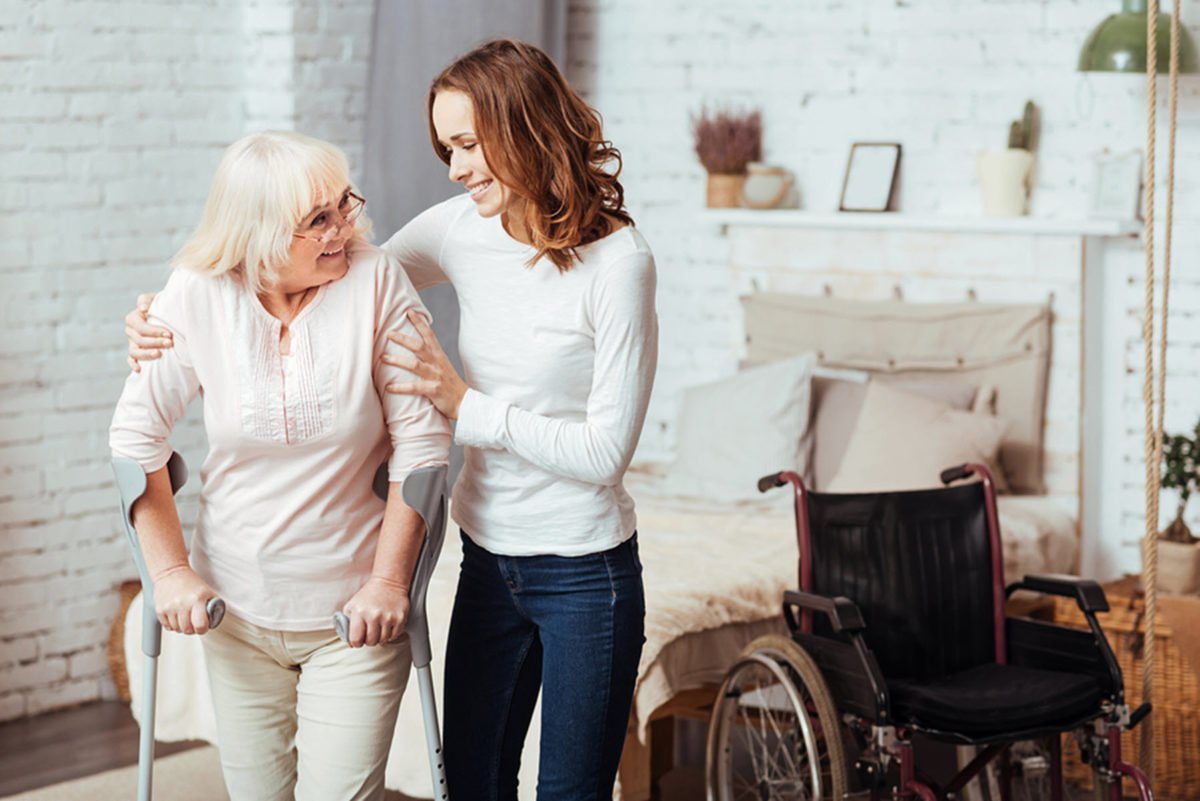Four Ways to Take Care of Yourself in the Later Stages of Caregiving

As your senior nears the end of her life, you both may be experiencing emotional and physical changes. How you care for yourself during this time matters and affects your ability to be there for her.
Eat According to Timing, Even if Your Appetite Is Off
When you’re dealing with something as stressful as end-of-life caregiving, your appetite is likely to have disappeared. The truth is, though, that your body still needs fuel. It can either pull that fuel from your existing bodily stores, which don’t last long, or from the food you eat. If you’re not eating, though, you’re not putting fuel in. Try to eat at least something according to the clock, even if you’re not hungry. A snack can still get some needed nutrients into you. A meal does even more.
Pay Attention to When You Need Rest
Rest might feel impossible, too, but you need sleep in order to keep functioning. It’s important that you at least try to allow yourself to rest, even if you’re sure you won’t get much. Another idea is to talk to your doctor about how you’re feeling and whether you need to try something else. Your brain and body may have a hard time relaxing enough to allow you the sleep you need.
Find Ways to Deal with Your Feelings
This is a time when you and other family members are likely fraught with emotion, but showing that emotion to or around your senior isn’t really a great idea. You’re going to need to deal with those feelings, but in a way that is appropriate. You may be feeling a wide range of emotions, like anger and grief at losing your senior or even relief and sadness that she’s going to be in a better place. However you’re feeling, you have to process it. Journaling helps as can talking to a counselor. End-of-life care services can help you to find the tools you need.
Allow End-of-life Care Providers to Handle Tasks
There’s a lot that might be different for your senior at the end of her life. She may have some specific care tasks that need to be handled and many of those may feel out of your comfort zone. End-of-life care providers can handle those tasks for her and for you, enabling you to be there for emotional support. This can also free up some of your physical energy so that you’re better able to handle the demands on you during this time.
Being exhausted and worn out is normal during this stage of caregiving, but you still need to take care of yourself. When you do, you’re going to be more likely to be there for the important things as they happen.




 CHAP Accredited
CHAP Accredited